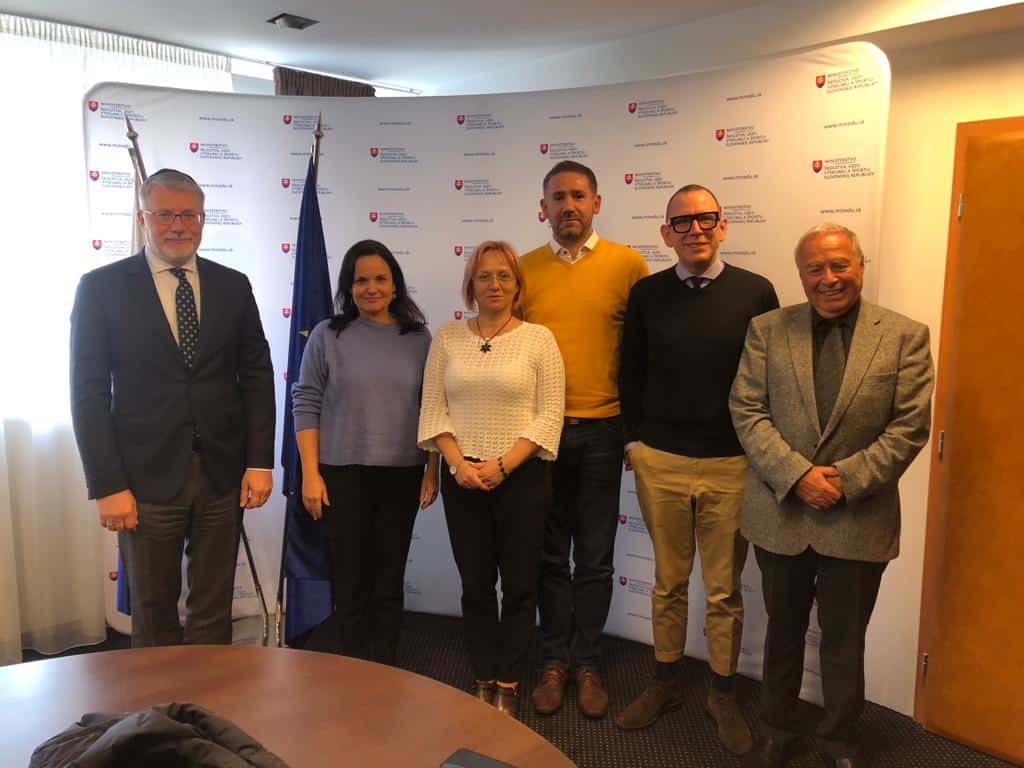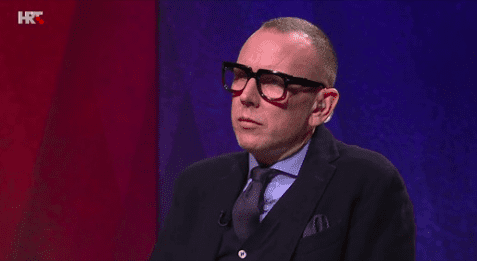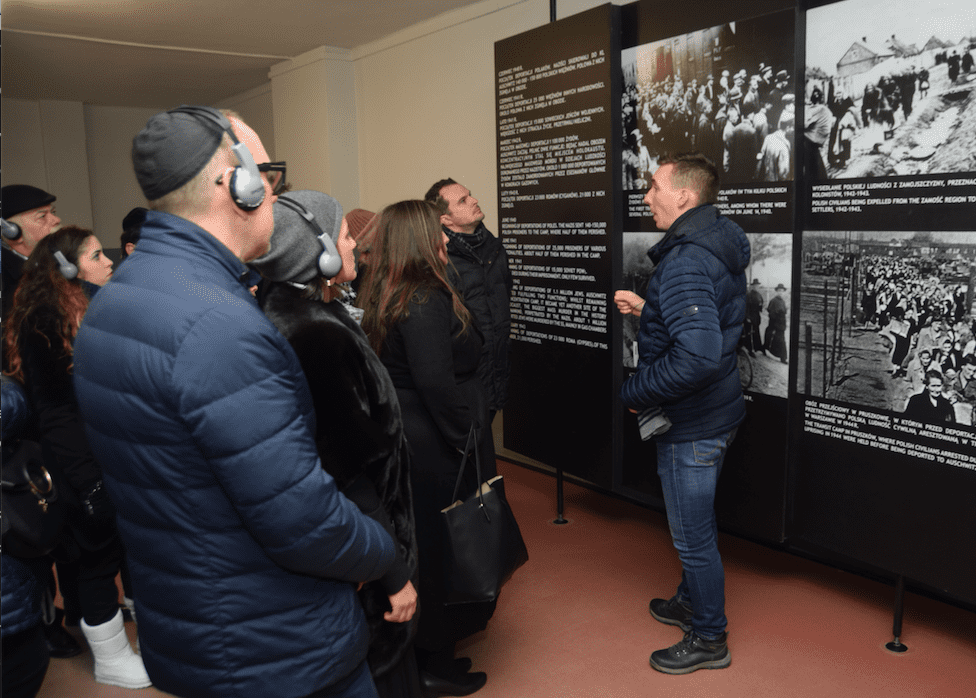Yesterday, on 29 October 2019, the European Jewish Association and our partners from the Action and Protection Foundation /Hungary/ have once again travelled abroad to meet with government officials regarding the European Curriculum and Textbook Project against Antisemitism. This time, our destination has been the Slovak capital of Bratislava, situated at the very heart of Europe, in-between the Danube and Morava rivers.
Alex Benjamin, EJA’s Director of Public Affairs, Ferenc Olti, Board Member of the Hungarian Jewish Cultural Association, and Kálmán Szalai, APF’s Secretary, have met with Maria Prekop, Director General at the Department of Minorities and Inclusive Education, and Katarína Baranyaiová, Counsellor at the Department of Bilateral and Multilateral Cooperation of the Ministry of Education, Science, Research and Sport of the Slovak Republic.
During the meeting, we have had a chance to present the project, its earlier implementation process and the results achieved in Hungary, as well as discuss the Slovak system of education, particularly its emphasis on minority inclusion and social dialogue, and thus briefly touch upon the project’s compatibility with the rules and customs already in place.
It has been agreed that our proposal shall be further carefully examined by the Ministry, with a special attention towards its operational feasibility in case of potential adaptation within the national curriculum.
We greatly appreciate the forthcomingness of the Slovak authorities and the very productive discussion with Ms. Prekop and Ms. Baranyaiová. We thus eagerly look forward to hopeful cooperation with the Ministry, the local Jewish community and other partners on this important initiative.

















